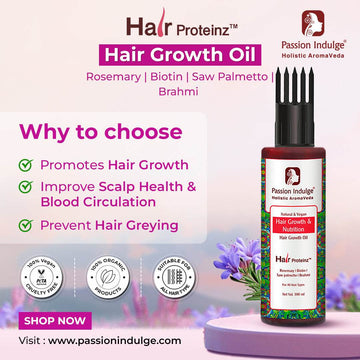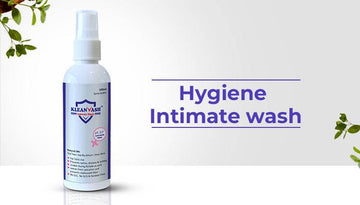How to choose the Right Sunscreen based on your skin type?
par Passion Indulge sur Mar 13, 2024

IMPORTANCE OF SUN PROTECTION:
Excessive exposure to harmful UVA (ultraviolet) & UVB (ultraviolet B) rays can lead to a range of skin issues, including sunburn, premature ageing, hyper-pigmentation, and an increased risk of skin cancer. Hence the sun protection is crucial for everyone.
WHAT ARE SUNSCREENS?
Sunscreens protect the skin against sunburns and play an important role in blocking the penetration of ultraviolet (UV) radiation. But no sunscreen product blocks UV radiation 100%.
The protection provided by a sunscreen is indicated by the sun protection factor (SPF) listed on the product label. A product with an SPF higher than 15 is recommended for daily use.
NOW WHAT IS SPF? (SUN PROTECTION FACTOR)
SPF is a measure of how well a sunscreen will protect skin from UVB rays, the kind of radiation that causes sunburn, damages skin, and can contribute to skin cancer.
CHOOSING RIGHT SPF
Yes, It involves understanding your skin type, considering your daily activities, opting for broad-spectrum protection, and ensuring consistent application. By selecting an appropriate SPF and practicing sun-safe habits, you can safeguard your skin.
Generally, Dermatologists recommend using a broad-spectrum sunscreen with an SPF of 40 or higher. The term "broad-spectrum" implies that the sunscreen protects against both UVA and UVB rays. SPF 30 blocks approximately 97% of UVB rays, while higher SPFs offer slightly more protection.
What is the actual difference between SPF40 & Higher than 40?
The difference between a SPF 40 is you block out 97.5% of UVB radiation and SPF 50 blocks 98%.
This is a very small difference for the cost of purchasing a SPF 50. More important than using a super high SPF is using enough sunscreen.
98% protection is better than 97.5%, but you have to consider other factors of the sunscreen as well:
1. Broad-spectrum protection: This means the sunscreen protects against both UVA and UVB rays. While all sunscreen products focus on UVB rays—the leading cause of sunburn and skin cancer—UVA rays also cause premature aging and contribute to skin cancer.
2. Non-greasy formula: Many sunscreen products are specially formulated for the face with a lightweight feel and non-greasy finish that won’t clog your pores. Any product marketed for acne-prone or sensitive skin should fit the bill.
Example: “SPF 40 sunscreen applied properly will give better protection than an SPF 50 sunscreen applied too thinly.”
3. Amount Matters: Dispense around a teaspoon of sunscreen—about 5 millilitres.
4. Even Distribution: Start applying from the center of your face, moving outward. Make sure to cover your face and neck.
HOW MUCH TO APPLY:
Applying less sunscreen than needed can result in inadequate protection. To ensure thorough coverage of your face and neck, utilize approximately one teaspoon (5 millilitres) of sunscreen. Employ your fingertips for application and proceed to uniformly distribute the sunscreen across your facial area, massaging it in gentle upward motions.
Here are the sunscreen options you should select based on how much sun exposure you receive:
1. Outdoors: Depending on your skin tone, choose a product with SPF 30 or higher if you will be largely outdoors for an extended amount of time (two hours or more).
2. Sports/Swimming: It is advisable to select a sunscreen that is sweat- or water-resistant if you want to engage in sports on land or in water. Depending on the tone of your skin, choose an SPF of 30 or higher and reapply every 40 to 60 minutes.
3. Normal day: Wear sunscreen with a minimum SPF of 40 on regular days when you will be in both the sun and the shade.
Besides just wearing sunscreen every day, here are some other ways you can prevent your risk of skin cancer and aging appearance:
- Wear protective clothing along with your sunscreen. Try to cover your arms and legs as best as you can. Also, wear a hat and sunglasses.
- Avoid the sun during the middle of the day. The sun’s rays are the strongest between 10am and pm. Avoiding the sun at its strongest helps prevent sunburns that cause skin damage.
CONCLUSION:
The protection provided by sunscreen is related to the amount of product applied. It is essential to apply larger amounts of sunscreen for adequate photo protection. Protecting yourself from harmful ultraviolet rays should always be your priority. It may seem like an inconvenience to worry about your exposure to the sun every day, but in the long run it will all be worth it.




